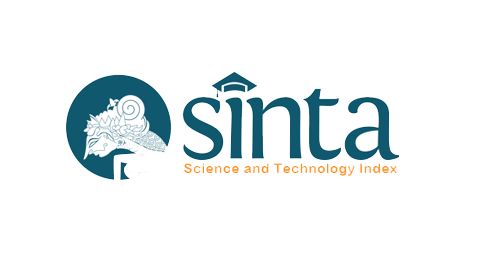Spiritual Well-Being of Acute Coronary Syndrome Patients in The Cardiac Intensive Care Unit
DOI:
https://doi.org/10.35568/healthcare.v6i1.4448Keywords:
Acute Coronary Syndrome, Cardiac Intensive Care Unit, Spiritual Well-Being, PatientAbstract
Patients with Acute Coronary Syndrome (ACS) are at risk of experiencing problems in various aspects of life. Changes in spiritual conditions are one of the problems that often occur, especially spiritual well-being. Existential well-being (EWB) and religious well-being (RWB) are specific parts of spiritual well-being that will be analyzed in this study. The research design used is descriptive with a cross-sectional approach. The study population was patients who experienced Acute Coronary Syndrome and were treated in the cardiac intensive unit with a total of 84 patients who were taken using a non-probability sampling technique with a purposive sampling method. The instrument used is the Indonesian version of the Spiritual Well-Being Scale (SWBS) questionnaire and has received permission from the original owners Ellison and Paloutzian by paying for the copyright. The results showed that the level of religious well-being (RWB) and existential (EWB) was in the high category with 86.9% and 71.4% respectively. There were no respondents who had a low level of religious or existential spiritual well-being. Health service providers are expected to be able to assess the spiritual well-being of ACS patients so that spiritual problems can be detected and efforts to treat them as early as possible.
Downloads
References
AHA. (2022). Acute Coronary Syndrome (ACS). Retrieved from American Heart Association website: https://www.heart.org/en/health-topics/heart-attack/about-heart-attacks/acute-coronary-syndrome
Amni, R., Akbar, Y., Nuraeni, A., & Akbar, M. R. (2022). Tingkat depresi pada pasien sindrom koroner akut di Unit Perawatan Intensif Jantung : analisis menggunakan skala depresi jantung. Jurnal Keperawatan, 20(3), 31–41. https://doi.org/https://doi.org/10.35874/jkp.v20i3.1063
Andersson, E. K., Borglin, G. and Willman, A. (2013) ‘The experience of younger adults following myocardial infarction’, Qualitative Health Research, 23(6), pp. 762–772. doi: 10.1177/1049732313482049.
Bekelman, D. B. et al. (2010) ‘A Comparison of Two Spirituality Instruments and Their Relationship With Depression and Quality of Life in Chronic Heart Failure’, Journal of Pain and Symptom Management. Elsevier Inc, 39(3), pp. 515–526. doi: 10.1016/j.jpainsymman.2009.08.005.
Ellison, C. W. (1983) ‘SPIRITUAL WELL-BEING: CONCEPTUALIZATION AND MEASUREMENT’, Journal of Psychology and Theology, 11(4), pp. 330–338.
Hamm, C. W. et al. (2011) ‘ESC Guidelines for the management of acute coronary syndromes in patients presenting without persistent ST-segment elevation: The Task Force for the management of acute coronary syndromes (ACS) in patients presenting without persistent ST-segment elevatio’, European Heart Journal, 32(23), pp. 2999–3054. doi: 10.1093/eurheartj/ehr236.
Ibanez, B. et al. (2018) ‘2017 ESC Guidelines for the management of acute myocardial infarction in patients presenting with ST-segment elevation’, European Heart Journal, 39(2), pp. 119–177. doi: 10.1093/eurheartj/ehx393.
Jaberi, A. et al. (2017) ‘Spiritual Health: A Concept Analysis’, Journal of Religion and Health. Springer US, 58(5), pp. 1537–1560. doi: 10.1007/s10943-017-0379-z.
Jahani, A. et al. (2014) ‘Spiritual wellbeing of Iranian patients with acute coronary syndromes: A cross-sectional descriptive study’, Journal of Research in Nursing, 19(6), pp. 518–527. doi: 10.1177/1744987114547606.
Kemenkes RI (2017) ‘Penyakit Jantung Penyebab Kematian Tertinggi, Kemenkes Ingatkan CERDIK http://www.depkes.go.id/article/view/17073100005/penyakit-jantung-penyebab-kematian-tertinggi-kemenkes-ingatkan-cerdik-.html’.
Kumar, A. and Cannon, C. (2009) ‘Acute coronary syndromes: diagnosis and management, part I’, Mayo Clinic Proceedings, 84(October), pp. 917–938. Available at: http://www.sciencedirect.com/science/article/pii/S0025619611605090.
Kurniawan, D., Ibrahim, K. and Prawesti, A. (2015) ‘Pengalaman Pasien Mengalami Serangan Jantung Pertama Kali yang dirawat di Ruang CICU’, Jurnal Keperawatan Padjadjaran, v3(n2), pp. 67–76. doi: 10.24198/jkp.v3n2.2.
Memaryan, N., Rassouli, M. and Mehrabi, M. (2016) ‘Spirituality Concept by Health Professionals in Iran: A Qualitative Study’, Evidence-based Complementary and Alternative Medicine, 2016. doi: 10.1155/2016/8913870.
Moeini, M. et al. (2012) ‘The effect of spiritual care on spiritual health of patients with cardiac ischemia.’, Iranian journal of nursing and midwifery research, 17(3), pp. 195–199.
Nuraeni, A., Ibrahim, K. and Agustina, H. R. (2013) ‘Makna Spiritualitas pada Klien dengan Sindrom Koroner Akut’, Jurnal Keperawatan Padjadjaran, 1, pp. 79–87.
Paloutzian, R. F., Bufford, R. K. and Wildman, A. J. (2012) ‘Spiritual Well-Being Scale: mental and physical health relationships’, Oxford Textbook of Spirituality in Healthcare, pp. 353–358. doi: 10.1093/med/9780199571390.003.0048.
PERKI (2018) ‘Pedoman Tatalaksana Sindrom Koroner Akut’, p. Perhimpunan Dokter Spesialis Kardiovaskular Indone. doi: 10.3945/ajcn.114.100065.
Potter and Perry (2010) Fundamental Of Nursing edisi 7. Jakarta: Salemba Medika.
Tammeh, M. A. et al. (2016) ‘The concept of spiritual well-being from the viewpoint of nurses caring for heart disease patients’, International Journal of Humanities Cultural Studies, 3(1), pp. 2109–2116.
Timmins, F. and Kelly, J. (2008) ‘Spiritual assessment in intensive and cardiac care nursing.’, Nursing in critical care, 13(3), pp. 124–131. doi: 10.1111/j.1478-5153.2008.00276.x.
Whitehead, D. L. et al. (2005) ‘Frequency of distress and fear of dying during acute coronary syndromes and consequences for adaptation’, American Journal of Cardiology, 96(11), pp. 1512–1516. doi: 10.1016/j.amjcard.2005.07.070.
World Health Organization (2018) ‘The top 10 causes of death Http://www.who.int/mediacentre/factsheets/fs310/en/index2.html’.
Yaghoobzadeh, A. et al. (2018) ‘Relationship Between Spiritual Well-Being and Hope in Patients with Cardiovascular Disease’, Journal of Religion and Health. Springer US, 57(3), pp. 938–950. doi: 10.1007/s10943-017-0467-0.
Downloads
Published
Issue
Section
License
Copyright (c) 2024 The Author(s)

This work is licensed under a Creative Commons Attribution 4.0 International License.

















